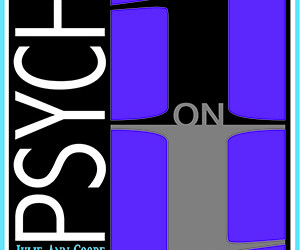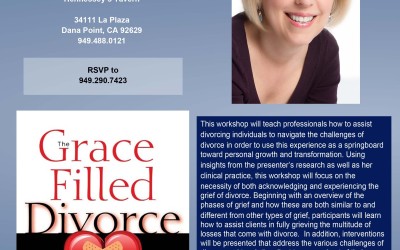Divorce, if it were rightly done, would be done as an act of love and done for the honest good of the people involved. Such divorce, though rare, remains nonetheless possible and may be necessary. — Dallas Willard
Call the world if you please “The vale of Soul-making.” –John Keats
For Christians divorce, much like abortion or addiction is a shameful experience, one that carries with it the stigma of personal, moral and spiritual failure. Thus divorce is a topic that most Christians avoid at all costs. On any given Sunday, approximately one-half of all attendees at church services have been divorced. Yet few have really had the opportunity to fully grieve this loss and to discover the gold that lies within the dross of pain and suffering that divorce brings with it. As Christians, we believe that God is in midst of suffering. Through his incarnation, we understand that God knows the pain that we feel. He wept at the tomb of his friend, Lazarus. He was crucified and died on a cross. But the grief and suffering that comes with divorce seems to challenge this assumption. After all, the Bible clearly states, “God hates divorce.” For many divorcing Christians, the logical extension is that “God must hate me”. As a result, grief in divorce is given short shrift, if it is acknowledged at all. It is as though divorcing individuals do not have the right to grieve, let alone call upon God in the midst of their suffering. Consequently, grief in divorce becomes transmuted into anger and resentment. The price we pay is an increase in suffering for all concerned. Divorce courts that are clogged with cases; children caught up for years in custody battles; friends and relatives who feel pressured to take sides all bear witness to grief that has gone underground. But centuries of Christian writings and contemplative practices attest to the fact that, in the words of John Keats, this life is the “vale of Soul-making”. Pain and suffering, whatever the cause, can be transmuted into a deeper and richer experience of God. That is the premise of The Grace Filled Divorce, that much like any other unwanted experience – cancer, mental illness, chronic illness – divorce can be redeemed. By fully experiencing the grief of divorce, individuals can move through this time of suffering into a richer relationship with God, themselves and others. In much the same way that John Eldridge brought the love story at the center of Christianity into the consciousness of millions of Americans with The Sacred Romance, Dallas Willard called for Christians to rediscover the true meaning of following Christ in The Divine Conspiracy, and Brian McLaren in Finding Our Way Again presents the value of a return to ancient practices, The Grace Filled Divorce will shine a light on the grief of divorce and present it as an opportunity for spiritual formation. Through my doctoral research, and in my work now as a Christian psychologist, I have learned that individuals can recognize, honor and navigate the grief process of divorce and respond to the presence of God in each stage. Centering on the real-life stories of individuals who traversed the journey of grief after divorce and discovered a deeper and richer experience of God as a result, The Grace Filled Divorce will show readers how the willingness to confront the pain of grief can result in a transformative experience. As one contributor explains, “When I look back at where I have come from, and the person I used to be, it still amazes me. That all I can say. It still amazes me.” This book will combine the insights of relational psychology with centuries of Christian writings and spiritual formation exercises to assist the reader in learning how to move toward a richer life and more nuanced spirituality. Each chapter features a lesson highlighted in a sidebar with quotes with exercises that address both the interpersonal and spiritual topics discussed in the chapter. These are designed to assist the reader in learning the lessons grief in divorce has to teach. The Grace Filled Divorce is a book about finding God in the midst of suffering, even the pain of divorce. It is about learning to use the experience of grief to let go of old ideas, assumptions and perspectives and embrace a new life. Readers will learn how conscious grieving will eliminate resentment and bitterness, assist in creating a more positive relationship with the ex-spouse and allow God to work a good work in order that His love may be more fully revealed. This is the pathway that lies before each divorcing Christian. It is the journey from loss to transformation that comes from actively seeking grace even in the midst of divorce.
When A Millennial Returns: Tips for How to Make Multigenerational Living Work for Your Family
A marital and family therapy expert from The Chicago School of Professional Psychology shares advice from over fifteen years in private practice about how several generations can live together in harmony. Melody Bacon, Ph.D. Dr. Melody Bacon is an author and licensed...
Standing in Life’s Doorway: Finding Our Islands Far From Home
Like Magellan, let us find our islands To die in, far from home, from anywhere Familiar. Let us risk the wildest places, Lest we go down in comfort and despair. -- Mary Oliver I’ve never been one to accept loss with equanimity, though I often wish I...
The Tenuous, Precarious Nature of Faith
To say that one must live with uncertainty doesn’t begin to get at the tenuous, precarious nature of faith. The minute you begin to speak with certitude about God, he is gone. --Christian Wyman in “My Bright Abyss” Years ago a friend of mine once told me...
Embrace the Future: The Empty Space Before the Open Door
One is afraid. Naturally. Who is not afraid of pure space--- that breath-taking empty space of an open door?” --Anne Morrow Lindbergh in Gift from the Sea Once or twice a week, I take the train to Los Angeles. It is a relaxing counterpart to the...
Christ is Contingency
But what a relief it can be to befriend contingency, to meet God right here in the havoc of chance, to feel enduring love like a stroke of pure luck. -- Christian Wiman in My Bright Abyss I’ll never forget my first terrifying encounter of God. I...
Dr. Melody Bacon Interview on “The Grace Filled Divorce”
http://www.skidrowstudios.com/psych1on1/2013-04-24/20410/psych-1-on-1-dr-melody-bacon Check out this one-hour long Dr. Melody Bacon interview. In it, she discusses "The Grace Filled Divorce", relationships, and more!
The Empty Choiceless Terrain of Grief
Grief can leave you gifts after the pain has departed.
Dealing With Regret: “I Really Should Have (Shouldn’t Have)”
Essentially most people – in an effort to disguise their internal struggles – will say “I’m over it” when they really aren’t – they wish they were over it – they wish it didn’t bother them, but it does.
Book Signing and Presentation on April 10th – 6:00 – 7:30 pm
Join us at Hennessey’s Tavern in Dana Point (on PCH at Golden Lantern) for a book signing and presentation from 6:00 – 7:30 pm! Look forward to seeing you there!
Silence Haunted: The Beginning of the Grieving Process
The experience of being silence-haunted is part and parcel with the end of love – it is part of the price that brave souls pay for having loved and lost. Over time, this too shall pass. It is painful but also a testament to your ability to truly love someone. Whether you are grieving the loss of your spouse through divorce or death, the truth is that the terrain of grief, while well traveled, is also one that you must travel in your own way and your own time. Having taken that road, through the silence-haunted early days of grief, you will find new vistas that lie before you – waiting to be discovered.










